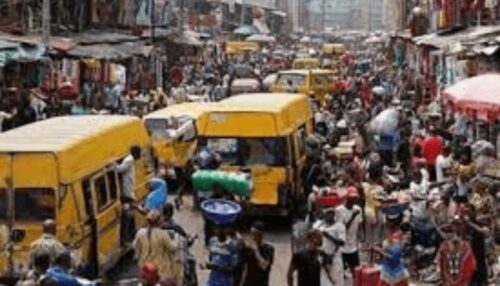The ongoing surge in Nigeria’s cost of living has cast a long shadow over daily life, draining the joy from families’ experiences. With food inflation hitting a staggering 39.84% in December 2024, Nigerians are faced with relentless price hikes across essential goods and services. Rent, transportation fares, and food prices are all soaring, largely due to economic reforms spearheaded by President Bola Ahmed Tinubu’s administration. Although these reforms, including the removal of fuel subsidies and the unification of exchange rates, were intended to stabilize the economy over time, they have pushed millions into poverty, severely eroding their purchasing power.
A growing concern is the spiraling housing costs, especially in major cities like Lagos, Abuja, and Port Harcourt. Landlords, taking advantage of the high demand for accommodation, are raising rents sharply. For instance, Benson Ehime, a father of three, saw his rent in Ilamoshe Estate increase from ₦900,000 to ₦1.5 million. “The hardship is overwhelming,” he expressed. Another resident, Bisi Babjide, shared a heart-wrenching story of having to sell their car to meet the new rent and secure her son’s university spot, with their rent increasing from ₦500,000 to ₦1.2 million. The situation is dire, especially for families living in government-subsidized estates, where rents are escalating despite initial affordability.
The food situation is just as grim. With rising production costs and inflation wreaking havoc, basic items such as rice and eggs have become unaffordable for many. In markets across Lagos, a bag of rice now costs as much as ₦98,000 (foreign) or ₦88,000 (local). Eggs and vegetable oil prices have also surged, putting even the most basic meals out of reach for the poor. The 2024 Global Report on Food Crises ranks Nigeria second globally for acute food insecurity, with over 24 million people struggling to find enough to eat.
Transportation costs, too, have become unbearable. The government’s removal of fuel subsidies, meant to stabilize the economy, has instead led to sharp increases in fuel prices, which are now between ₦1,000 and ₦1,070 per liter. This spike has impacted all sectors, from food prices to the cost of services, leaving many Nigerians unable to keep up. Clement Okafor, a father trying to send his son to university, spent ₦60,000 on transportation only to see the school close after just two exams. Similarly, Mary James was left shocked when the cost of traveling from Lagos to Asaba jumped from ₦20,000 to ₦40,000, while public servants like Adekunle Olusola now spend ₦84,000 a month just commuting to work, draining a significant portion of their income.
With Nigeria’s inflation rate soaring to 34.6% in November 2024, the country is facing its highest inflation since returning to democracy. Everyday items like bread and milk have doubled or tripled in price, further stretching already limited resources. Meanwhile, Nigeria’s GDP growth has stagnated, and an increasing number of Nigerians—129 million, according to the World Bank—are now classified as poor.
The cost-of-living crisis is not just an economic issue; it is a profound social crisis, contributing to widespread inequality and eroding public trust in government. The situation has become so dire that many families are forced to choose between basic necessities—food or medication, rent or education. Desperation has led to tragic consequences, such as the deadly stampedes at aid distribution centers in December 2024, which claimed over 50 lives.
To tackle this crisis, the government must introduce policies to regulate rents, stabilize food prices, and subsidize transportation. Public-private partnerships can help increase housing supply and improve agricultural productivity, while expanding social safety nets can protect the most vulnerable from the worst effects of inflation.
While President Tinubu’s economic reforms are intended to stabilize Nigeria’s economy in the long term, immediate interventions are necessary to provide relief to those suffering in the short term. Without quick action, the cost-of-living crisis could spiral into a full-scale social catastrophe, threatening Nigeria’s fragile stability and leaving millions of citizens without hope for the future.



